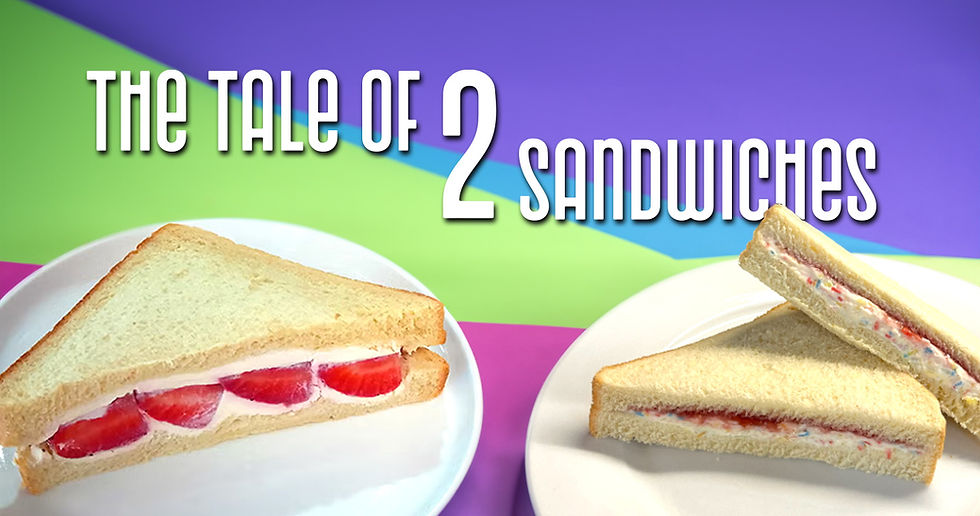Beyond the Hype: The REAL Sustainability Challenges and Opportunities for UK Food & Beverage Businesses in 2025
- Rhys Bennett
- May 1, 2025
- 3 min read

It's the topic du jour, isn't it? Everyone's sporting their reusable tote bags, patting themselves on the back for choosing oat milk (more on that later), and generally trying to be a bit kinder to our long-suffering planet. But beneath the surface of virtuous intentions and clever marketing campaigns, lies a tangled web of genuine challenges and, thankfully, some rather bright sparks of opportunity.
It's 2025, and the eco-conscious consumer is no longer a niche market – they're pretty much everyone with a smartphone and a conscience. They’re asking the tough questions: Is this "sustainably sourced" avocado flown halfway around the world? Will this "biodegradable" packaging outlive my grandchildren? And are the chickens laying those free-range eggs living their best life, or just a slightly less confined one? The era of vague pronouncements and pretty pictures simply won't cut it anymore.
One of the most significant hurdles we face is the sheer Gordian knot of the supply chain. Take your beloved morning brew, for instance. Clipper Teas, bless their ethical socks, have been pioneers in Fairtrade and organic sourcing, meticulously tracing their tea leaves back to the farmers who grew them. This level of transparency, ensuring fair wages and environmentally sound practices at the very beginning, is commendable. However, for many other food and drink products, the journey from field (or factory) to fork involves a dizzying array of intermediaries, each with their own environmental footprint. Achieving end-to-end sustainability requires a level of granular detail and collaboration that can feel like trying to herd particularly stubborn sheep across a muddy field.
Then there's the perennial puzzle of packaging. We’ve all stood forlornly over our recycling bins, wondering if that flimsy plastic film is truly recyclable or destined for landfill. The pressure to move away from single-use plastics is immense, and while innovation is bubbling away, finding truly scalable and effective alternatives remains a significant technical challenge. Companies like Rubies in the Rubble, those ingenious upcyclers of surplus produce, often showcase a refreshing pragmatism in their packaging choices, prioritising functionality and minimising unnecessary layers. However, for products with specific shelf-life requirements or complex distribution needs, the "perfectly sustainable" packaging solution can feel like a mythical creature. We need advancements in material science that can deliver both environmental responsibility and the practicalities of the food and beverage industry.
The economic realities can't be ignored either. Implementing sustainable practices often requires significant upfront investment in new technologies, sourcing different (and potentially more expensive) ingredients, and overhauling existing processes. Riverford Organic Farmers, who have steadfastly championed organic and sustainable farming despite potential cost implications, rely on a consumer base willing to pay a premium for their values. But for mainstream brands competing on razor-thin margins, absorbing these costs and passing them onto increasingly price-sensitive consumers is a tightrope walk. The challenge lies in finding sustainable solutions that are not only environmentally sound but also economically viable at scale.
However, amidst these complexities, some truly exciting opportunities are sprouting. The growing consumer demand for local and seasonal produce presents a chance to shorten those intricate supply chains, reduce transportation emissions, and support UK farmers. We're seeing innovative approaches to urban farming and vertical agriculture gaining traction, potentially offering more localised and resource-efficient ways to produce certain crops.
Furthermore, the UK is becoming a hotbed for food technology innovation. Initiatives like the funding boost for the Food Standards Agency's innovation hub signal a commitment to exploring novel technologies like precision fermentation for creating sustainable ingredients. This could revolutionise how we produce proteins, fats, and other essential components, potentially reducing our reliance on traditional, more environmentally intensive methods.
And let's not underestimate the power of collaboration. Organisations like the Food and Drink Federation are increasingly facilitating discussions and knowledge-sharing amongst businesses, recognising that tackling sustainability is a collective effort. Even seemingly small changes, like Innocent Drinks' long-standing commitment to using recycled plastic in their bottles and supporting sustainable fruit farming through the Rainforest Alliance, demonstrate that consistent effort across the industry can lead to significant cumulative impact.
Ultimately, the journey towards a truly sustainable UK food and beverage industry in 2025 is less about finding a silver bullet and more about embracing a multitude of smaller, often incremental, changes. It requires a willingness to be transparent about the challenges, to invest in innovation, to collaborate across the value chain, and to engage honestly with consumers. It might not always be glamorous, and there will likely be a few more muddy wellington boot moments along the way, but the potential for a more resilient, ethical, and environmentally sound future for our food and drink is a prize worth striving for.



